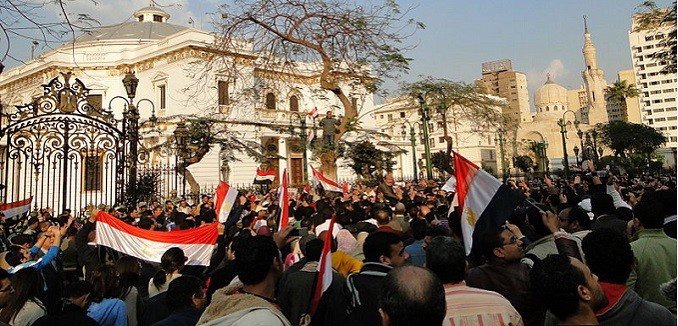A just-published analysis by Washington Institute fellow Eric Trager argues that Egypt’s Muslim Brotherhood has “doubled down” on efforts to secure power and that the Brotherhood-linked Freedom and Justice Party (FJP) is likely to prevail in the country’s upcoming but still unscheduled parliamentary election. He outlines an array of Brotherhood tactics – from providing social services to taking control of state-owned publications and television channels – designed to balance a series of failed policies by the country’s Brotherhood-linked president Mohamed Morsi.
Trager concludes that any pressure on the Brotherhood to reform will have to be imposed by outside actors in general, and that the U.S. should condition future economic assistance on Cairo’s progress in implementing economic reforms:
Washington should challenge the Brotherhood’s assumption that it can avoid important reforms without paying a diplomatic price. In particular, the Obama administration should tell the group that its focus on power consolidation at the expense of governance is destabilizing Egypt, and that the international community will not bolster a government that exerts little domestic control while overseeing a rapidly deteriorating economy. Washington should back up this warning by conditioning all future economic aid — along with support for the $4.8 billion loan that Cairo still hopes to obtain from the International Monetary Fund — on the Morsi government’s willingness to undertake key economic reforms such as reducing subsidies. Finally, the administration should begin speaking out more forcefully against the Brotherhood’s increasingly repressive rule.
Were the U.S. to demand economic reforms as a condition for aid, it would be following recent moves made by the International Monetary Fund. Egypt recently rejected an IMF loan containing badly needed financial assistance because the loan was conditioned on Cairo undertaking austerity measures.
Germany has recently withheld aid due to concerns over civil liberties, while Qatar has informed Cairo that it is just flat out not giving Egypt any more assistance in the near term.
The result is that the Morsi government is potentially trapped in a downward spiral. Though he entered office with significant political capital, Morsi squandered political legitimacy by pursuing a strategy that centralized power around the presidency and that saw a constitution grounded in Islamic law rushed through Egypt’s constitutional assembly. His government is now attempting to bolster its popularity via a program of economic populism, precluding the economic reforms necessary to secure economic assistance.
Continuing economic turmoil, in turn, will further erode the government’s popularity, pushing the government and the Brotherhood toward further economic subsidies and preemptive power grabs.
[Photo: Ramy Raoof / Wiki Commons]




